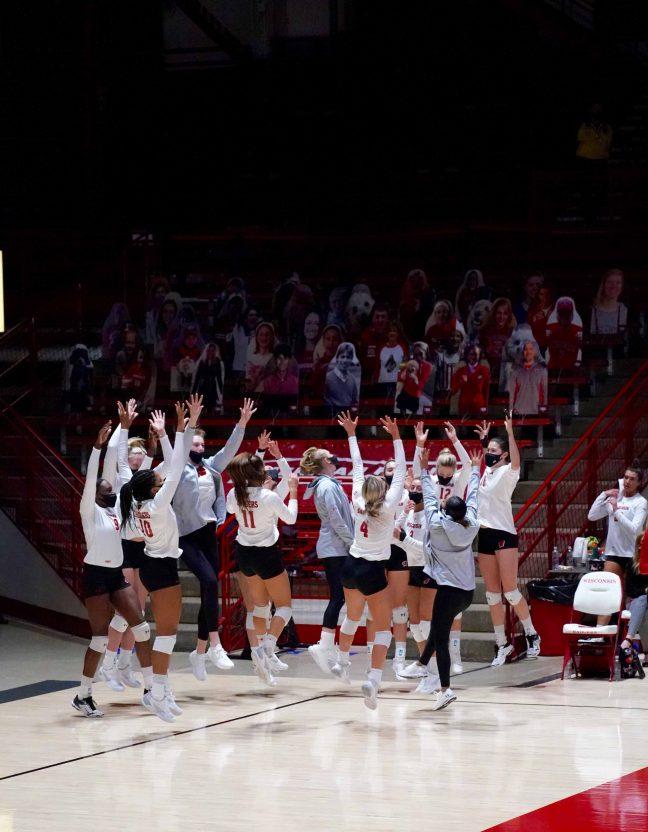March 2, Wisconsin Republicans joined an alarming number of states around the U.S. by introducing discriminatory bills aimed at preventing transgender athletes from participating in sports on teams that do not match the sex they were assigned at birth.
Over two dozen states have recently proposed similar bills, while other states, like Mississippi, are close to signing their bills into law. The purpose of the Protecting Women in Sports Act, at least in the eyes of Rep. Barbara Dittrich, R-Oconomowoc, is to increase fairness in women’s sports.
“Biological females are losing opportunities at titles, records, scholarships and even participation at times. Additionally, by ignoring the scientific biological fact that males have higher bone density, greater muscle mass and often greater height, women are being put in greater physical danger of greater injury in competition,” Dittrich said.
Claims that transgender athletes have an advantage in sports are not only unfounded, but inconsistent with Wisconsin Interscholastic Athletic Association records. The current WIAA policy allows transgender female athletes to compete in women’s sports following one year of medically documented testosterone suppression.
Since this policy’s introduction nearly eight years ago, there have been only a handful of complaints. In South Dakota, a state working towards passing a similar bill, there aren’t any transgender girls competing in female sports leagues at all.
Evers proposed budget rightfully promotes funding for new UW buildings, infrastructure
Why then, with so many other impending issues in the world, would we direct so much effort into making sports fair, when they were never fair to begin with? The fact is, biological differences, broken records and occasional injuries are an inseparable part of sports. So why do we care so much when an athlete is transgender?
When a football player hits the genetic lottery and starts getting Division I offers at 13 years old because of his superior size and strength, we don’t question whether or not this kid should be able to compete against other kids his own age. We certainly don’t suggest that his natural testosterone levels are simply too high or that he should be forced to take measures to lower them so the game would be more fair and nobody would get hurt.
Regulating testosterone levels in this way can be much more nuanced than just testing for performance enhancement drugs. What about women with naturally high testosterone levels? Should they be forced to take measures to lower their testosterone, or be forced to compete in the men’s division?
Rules like this, in the words of triathlete Chris Mosier, send the message, “women can be strong, but not too strong.”
Gov. Evers’ plan to reverse Act 10 could protect Wisconsin unions and workers
We must ask why it makes sense that a man with naturally high testosterone levels is seen as a gifted athlete, yet a woman with high testosterone levels must be handicapped to ensure fairness.
Any claim that transgender female athletes will always have a distinct biological advantage is a claim denying their identity. These claims and bills make a statement that transgender women will never be real women.
The idea that these bills are needed to protect women only further perpetuates the stereotype that women are weak and need protection. They are eerily similar to the “bathroom bills” designed a few years back to ban transgender people from public restrooms.
In this case, the inclusion of transgender people was portrayed as a threat to women. Supporters of these bills thought they would protect women from sexual assault in restrooms. In both instances, however, this “worst-case scenario” has been nothing more than a theoretical situation that almost never happens.
When we look at it like this, we can see the issue is not so much about promoting fairness, keeping women safe or protecting records. The recent onslaught of these bills across the country is a desperate attempt to cling to some idea of binary gender by alienating some of our society’s most least protected members.
Robin Vos’ request to lower flag for conservative radio show host degrades American flag
Being a part of a team can bring a sense of belonging to students who are already at risk of being ostracized. We need to seriously consider whether our beliefs regarding binary gender are so valid that we need to exclude certain kids from having a normal childhood.
“My message to Wisconsin’s transgender kids and students today is simple: I see you. You are welcome, you are wanted, and you belong,” Gov. Evers said in a tweet.
Directed at transgender students in Wisconsin, this tweet made clear that Evers would not be signing these bills. But, with over half the states in the U.S. proposing similar legislation, it’s evident the transgender population is still under attack. Evers’s message is one all Wisconsinites need to pass along to transgender students — You can play on our team.
Jack H. Hansen ([email protected]) is a sophomore studying business, philosophy and sustainability.




















